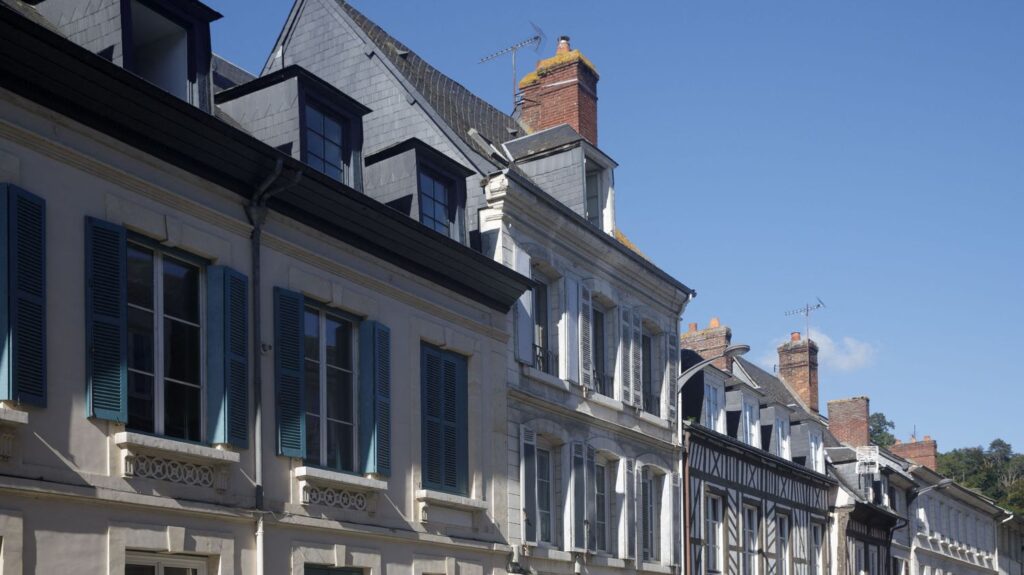Levied each year by local authorities, this tax, which concerns some 32 million owners, will increase due to an update of the calculation data.
/2023/07/05/64a55fd777de4_placeholder-36b69ec8.png)
Published
Reading time: 5min
/2025/11/19/010-gtt24a05-197-691dd68868d51676101131.jpg)
Bad news for many owners. The property tax for 7.4 million housing units will increase in 2026, the Ministry of the Economy announced to franceinfo on Tuesday, November 18, confirming information from the Parisian. This re-evaluation aims to better take into account certain so-called “comfort” criteria, such as running water, electricity or toilets. The measure will take effect with the next tax payment, in October 2026. Franceinfo answers three questions about this increase.
1 Why will property taxes increase?
The property tax, levied each year by local authorities and which concerns some 32 million owners, will increase due to an update of the tax calculation data. It concerns the cadastral rental value (VLC), set by Bercy. En addition to the surface area in square meters, the property tax is based on so-called “comfort” criteria, such as the presence of running water, electricity, WC or sinks in the accommodation.
These elements artificially increase the number of square meters taken into account, the basis on which the amount to be paid is calculated. Thus, the larger the surface area, the higher the tax.
A bathtub is thus equivalent to five square meters, access to water to four square meters, a sink and a toilet to three square meters, electricity to two square meters, lists the General Directorate of Public Finances (DGFIP) on the site impots.gouv. While the cadastral rental value (VLC) of a property is based based on data dating back 50 years, the government considers that millions of homes are undervalued and that at least one of the comfort elements does not appear in the data attached to housing.
“It’s a question of tax efficiency and fairness: that everyone pays according to the type of housing they own”justifies the office of the Minister of Public Accounts, Amélie de Montchalin. This operation “consists of taking into account, for housing which is very likely equipped with them given the current standard characteristics of housing, these comfort elements when they are not currently integrated into the land base.
2 Who is affected?
Around 7.4 million homes will be affected by the updating of calculation data, according to the Ministry of the Economy. That represents a little less than 20% of the 38.2 million housing units in France, excluding Mayotte, recorded by INSEE. While housing is divided into eight categories by the tax administration, those classified 7 and 8, “of mediocre or very dilapidated character and not rehabilitated, and for whom the presence of these comfort elements is not systematic, will not be affected by the operation”explains to franceinfo the DGFIP.
According to a note from the DGFIP consulted by The Parisianthis increase in property tax should bring an additional 466 million euros to local authorities. She will concern 25% of houses and 15% of apartments, with significant disparities depending on the territory. This revision could result in several dozen additional euros per owner, at an average of 12 euros per square meter added, specifies the general directorate of public finances to franceinfo.
3 When will this measure take place?
The revaluation will take place upon payment of the next property tax, in October 2026. The owners concerned will receive an email from the tax administration at the beginning of the year. They will be able to “report to the DGFIP services before April (…) if they consider that they do not have the comfort elements referred to”. The tax administration will communicate in more detail in June, with all the so-called “comfort” elements that it plans to integrate into the calculation of the tax. “L“Owners whose homes are not really equipped with these facilities will be able to contest their property tax imposition and obtain corresponding reliefs.” specifies the DGFIP.
The president ofu National Rally, Jordan Bardella, asked Sébastien Lecornu to renounce this measure. There government spokesperson stressed that a progress report would be made “in a few months.” “We reserve the right to question the relevance of this measure”assured Maud Bregeon on Wednesday after the Council of Ministers.


